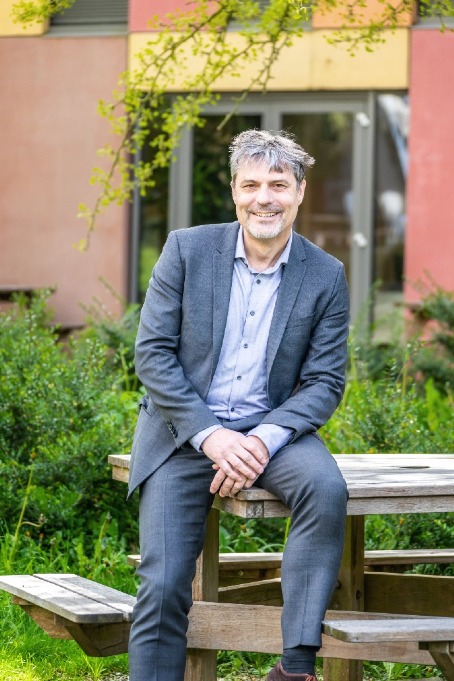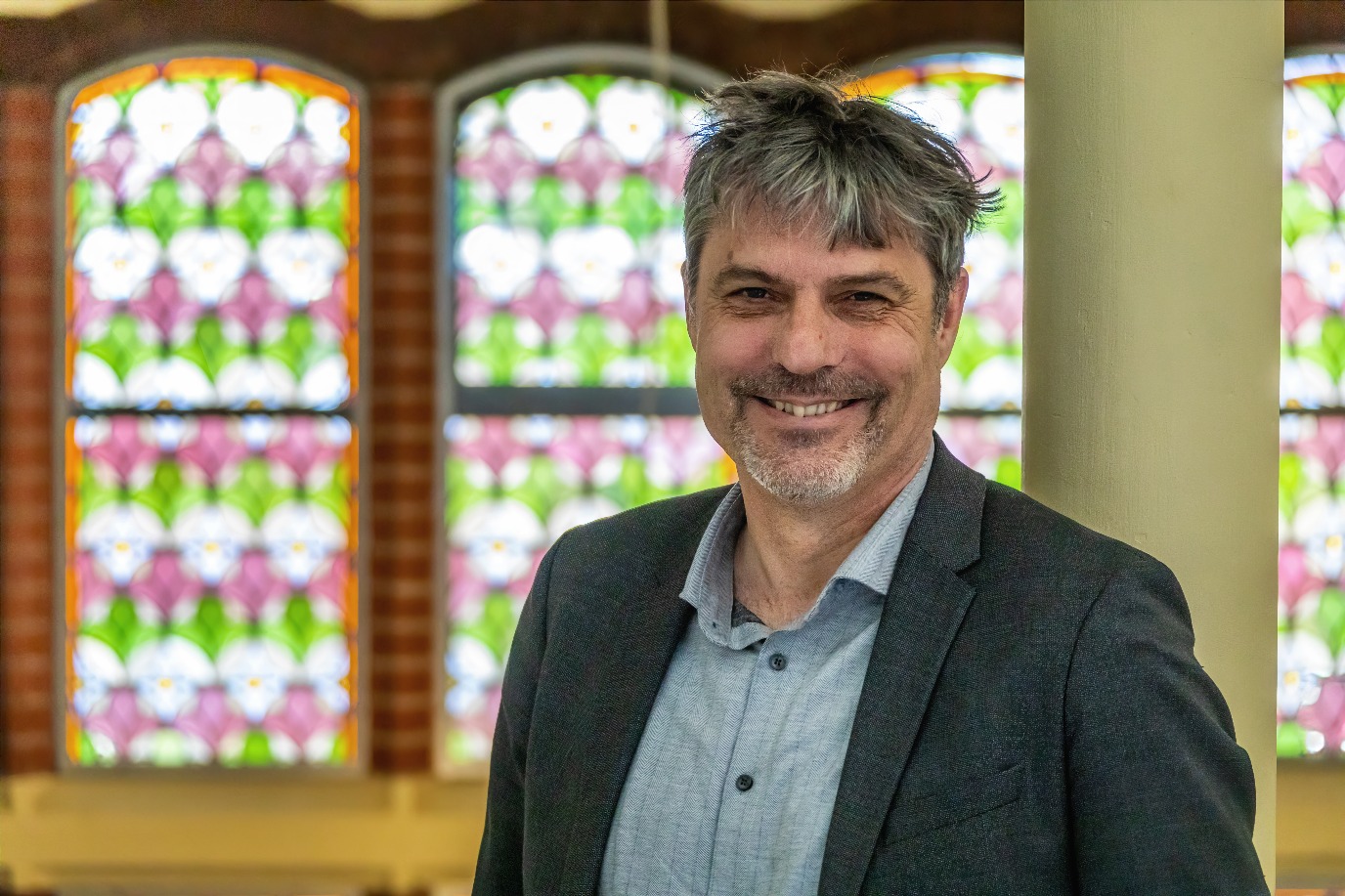Behavioral Scientist Carsten de Dreu Appointed as Professor
The University of Groningen is pleased to announce the appointment of renowned social and behavioral scientist Carsten de Dreu as research professor at the UG. De Dreu will hold the interfaculty chair in Foundations of Cooperation and Social Organization, initiated by the Faculty of Behavioral and Social Sciences, the Faculty of Economics and Business, and the Board of the University of Groningen.

At the University of Groningen, De Dreu will focus on fundamental theories and research on the evolution of cooperation and social organization, both in humans and in other species that live in groups. De Dreu states, "I am curious about how changes in the natural and social environment influence prosocial behavior and conflict within and between groups." His research aims to generate knowledge relevant to societal issues. "It may lead to adjustments in social and economic policies, for example, to mitigate the adverse effects of climate change and to prevent violent conflicts," De Dreu adds.
Having served as a professor at Leiden University and previously at the University of Amsterdam, De Dreu has built an impressive track record in research at the intersection of social and organizational psychology, behavioral economics, and neurobiology. Awarded the Spinoza Prize in 2018, De Dreu brings a wealth of experience and expertise to Groningen. Kees Aarts, dean of the Faculty of Behavioral and Social Sciences, expresses great enthusiasm for his arrival: "He is a world-class scientist who has demonstrated the ability to translate fundamental theories in the social sciences into excellent research. And equally important, Carsten knows how to unite researchers from diverse disciplines around fundamental theory-building."
Interdisciplinary Science
De Dreu's appointment also serves as a catalyst for interdisciplinary collaboration. Peter Verhoef, dean of the Faculty of Economics and Business, remarks, "We are laying the groundwork for innovative science with a strong interdisciplinary character and numerous practical implications. Carsten's arrival is the result of joint efforts by the faculties of BSS and Economics & Business, with support from the Board of the UG, aligning with the university's strategy." Collaboration will be sought primarily within these faculties, but there is already extensive contact with researchers at the Faculty of Science and Engineering. De Dreu's chair is located within the Sociology Department of the Faculty of Behavioral and Social Sciences.
De Dreu looks forward to interdisciplinary collaboration: "The University of Groningen harbors excellent scientists who study sociality and cooperation from biology, economics and organizational sciences, applied mathematics, sociology, and social psychology perspectives. By bringing together that expertise, we can truly advance our understanding of the biological, psychological, and socio-cultural foundations of cooperation in humans, as well as in a range of other animal species. Being part of such a project is simply a fantastic and unique opportunity." He also sees a role for the Schools for Science and Society and the House of Connections, providing the UG with a robust infrastructure for interdisciplinary science and education.

About professor Carsten de Dreu
Carsten K.W. de Dreu is currently full professor of social and economic psychology at Leiden University, a member of the Institute of Advanced Studies at the University of Amsterdam, and Humboldt Fellow at the Georg-August University in Göttingen. He obtained his PhD from the University of Groningen in the Netherlands (1993), and is fellow of several learned societies, including the Royal Netherlands Academy of Sciences, the Koninklijke Hollandsche Maatschappij der Wetenschappen, the Association for Psychological Science, and the International Association for Conflict Management.
With over 50 PhD and postdoctoral fellows, alongside a broad network of international collaborators, Carsten de Dreu has contributed to interdisciplinary theory and research on the neurobiological, social-psychological and behavioural foundations of human creativity, and of cooperation and conflict within and between groups. Some of this work is published in Science and Science Advances, in Nature Human Behavior and Nature Communication, and in the proceedings of the Royal Society and the National Academy of Sciences. For his scientific work De Dreu received several recognitions, including an appointment as Distinguished Research Fellow at the University of Oxford, an Advanced Grant from the European Research Council, and the Spinoza Prize from the Netherlands State Department for Science and Education. In 2024 he was awarded the Alexander von Humboldt Research Prize to study group formation and prosociality across primate species.
| Last modified: | 01 May 2024 12.59 p.m. |
More news
-
01 April 2025
UGBS Executive MBA best-rated MBA | Dutch Master's Guide 2025
According to the independent Keuzegids Masters 2025, the Executive MBA of the University of Groningen Business School is the best rated MBA in the Netherlands (both part-time and full-time programmes).
-
01 April 2025
Executive Master of M&A and Valuation accredited as joint degree with Vrije Universiteit Amsterdam
Starting 1 September, participants enrolled in the programme will receive a master's degree from both the University of Groningen and Vrije Universiteit Amsterdam upon successful completion.
-
05 March 2025
Women in Science
The UG celebrates International Women’s Day with a special photo series: Women in Science.
